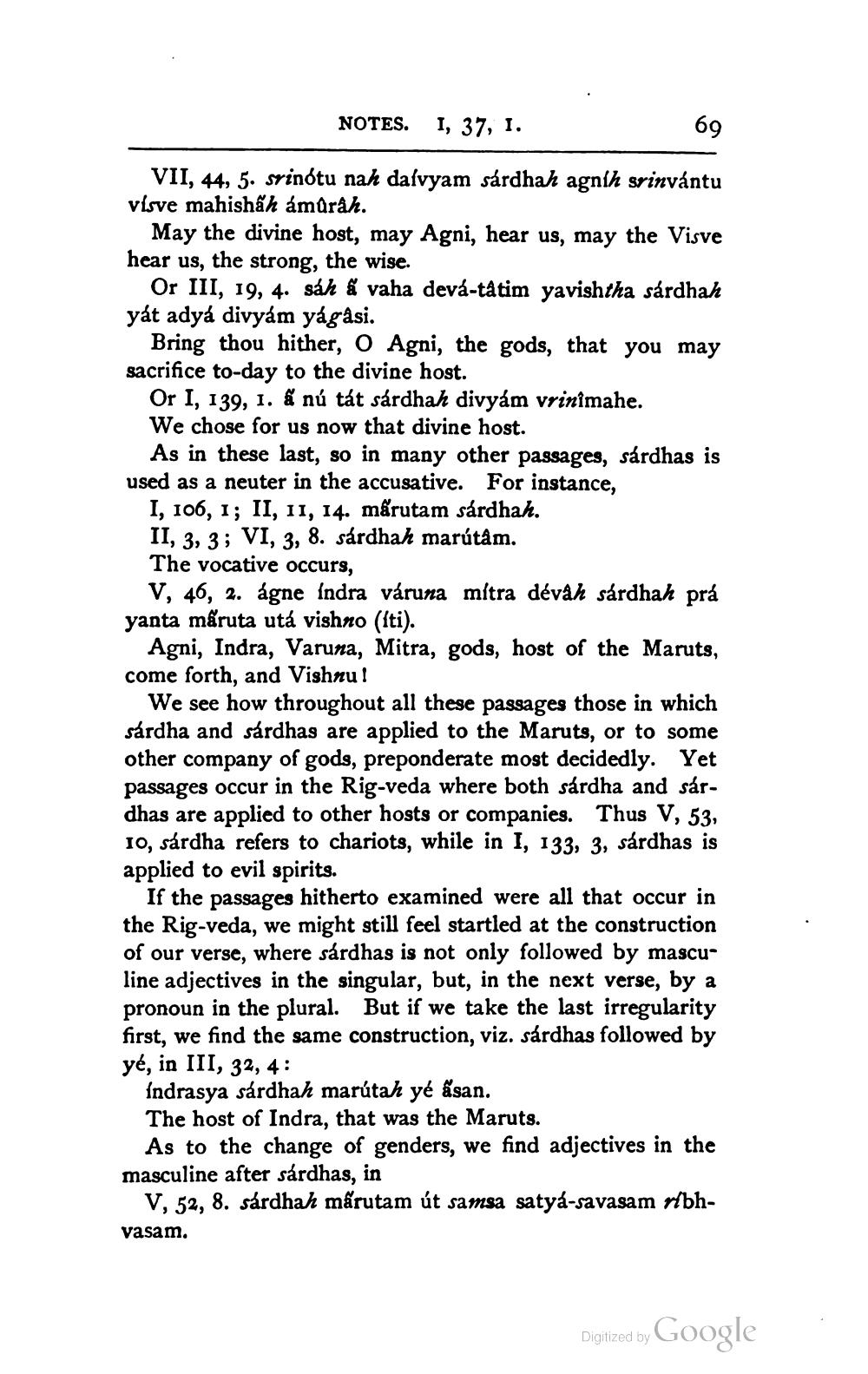________________
NOTES.
I, 37, I.
VII, 44, 5. svinotu nah dalvyam sárdhah agnih srinvántu visve mahishấh ámurah.
May the divine host, may Agni, hear us, may the Visve hear us, the strong, the wise.
Or III, 19, 4. sáh & vaha devá-tátim yavishtha sárdhah yát adya divyám yagasi.
Bring thou hither, O Agni, the gods, that you may sacrifice to-day to the divine host.
Or I, 139, 1. á nú tát sárdhah divyám vrinimahe. We chose for us now that divine host.
As in these last, so in many other passages, sárdhas is used as a neuter in the accusative. For instance,
I, 106, 1; II, 11, 14. márutam sárdhah. II, 3, 3 ; VI, 3, 8. sárdhah marútâm. The vocative occurs,
V, 46, 2. ágne Indra váruna mitra dévåh sárdhah prá yanta maruta utá vishno (Iti).
Agni, Indra, Varuna, Mitra, gods, host of the Maruts, come forth, and Vishnu !
We see how throughout all these passages those in which sárdha and sárdhas are applied to the Maruts, or to some other company of gods, preponderate most decidedly. Yet passages occur in the Rig-veda where both sárdha and sárdhas are applied to other hosts or companies. Thus V, 53, 10, sárdha refers to chariots, while in I, 133, 3, sárdhas is applied to evil spirits.
If the passages hitherto examined were all that occur in the Rig-veda, we might still feel startled at the construction of our verse, where sárdhas is not only followed by mascu" line adjectives in the singular, but, in the next verse, by a pronoun in the plural. But if we take the last irregularity first, we find the same construction, viz. sárdhas followed by yé, in III, 32, 4:
Indrasya sárdhah marútah yé ásan. The host of Indra, that was the Maruts.
As to the change of genders, we find adjectives in the masculine after sárdhas, in
V, 52, 8. sárdhah mấrutam út samsa satyá-savasam rbh
vasam.
Digitized by
Digitized by Google




